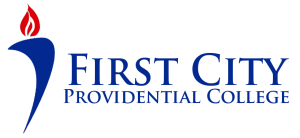Course Description: Midwifery Research 1 & 2
Midwifery Research 1 introduces students to the foundational principles and skills necessary to conduct and evaluate research studies within midwifery and related health fields. The course emphasizes the research process including identifying research topics, formulating research questions, selecting appropriate conceptual frameworks, and choosing methodologies for data collection and analysis. Students also develop competencies in literature review, understanding ethical issues in research, and preparing research proposals. A prerequisite in statistics is typically required to support understanding of data analysis techniques.
Midwifery Research 2 builds upon the first course by focusing on the practical development of a research project. Students collect and analyze data using statistical methods and standardized computer analysis techniques. They interpret research findings, apply advanced analysis tools, and prepare a comprehensive research paper. The course strengthens skills in applying evidence-based practice and supports students in making recommendations for future research in midwifery and healthcare contexts.
The course includes concepts, principles, and skills in the provision of basic services of health promotion/maintenance and disease prevention at the individual, family, and community level, Primary Care Workers Competencies.
The practicum is focused on the implementation of government health programs at the Rural Health unit, Barangay Health Station, and other health facilities. The practicum also includes the in-depth discussion and application of the principles, approaches, strategies, and processes of community health development and the Community Organizing Participatory Action Research (COPAR) model.
This course focuses on the development of the administrative and supervisory skills of the professional midwife. It includes discussion of ethico-moral concepts relative to issues and concerns in the midwifery administration and supervision.
The course deals with drug administration, intravenous insertion and the different drugs used in conditions affecting pregnancy, labor and delivery and lifesaving drugs for mothers and newborns during emergency. This emphasizes the midwife’s responsibilities, accountabilities and legal implications of drug preparation and administration.
The course focuses on the development of the administrative and supervisory skills of the professional midwife. It includes discussion of ethico-moral concepts relative to issues and concerns in the midwifery administration and supervision.
The course focuses on comprehensive discussion of the concepts, approaches, strategies and processes
of community health development; facilitating community involvement in the identification of health needs
and priorities; and management of community health services.
